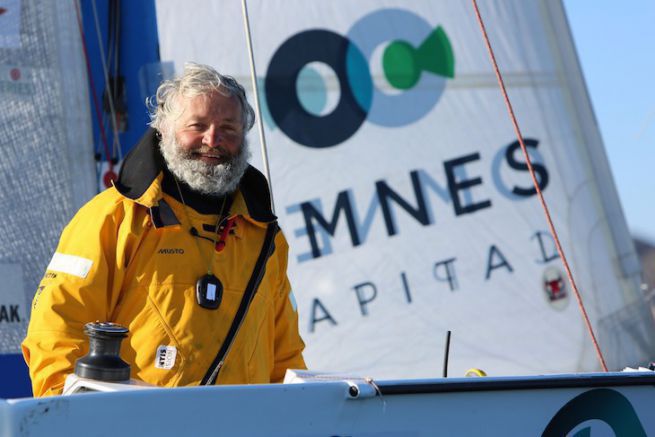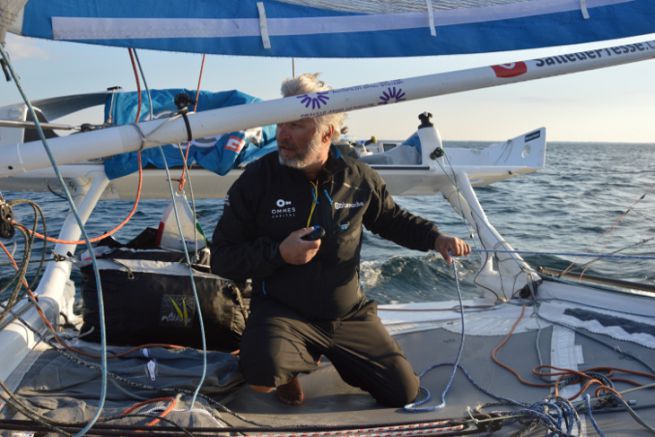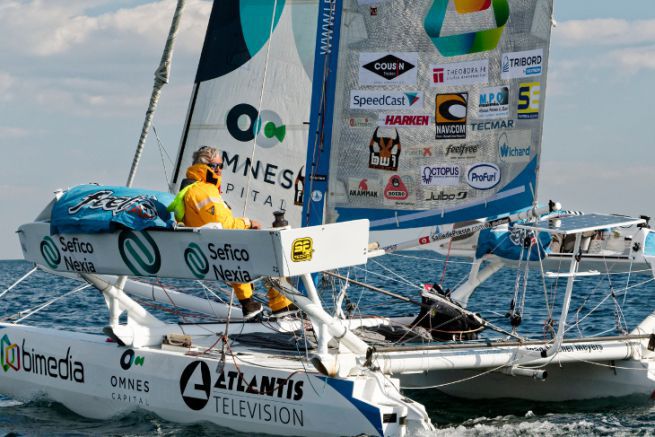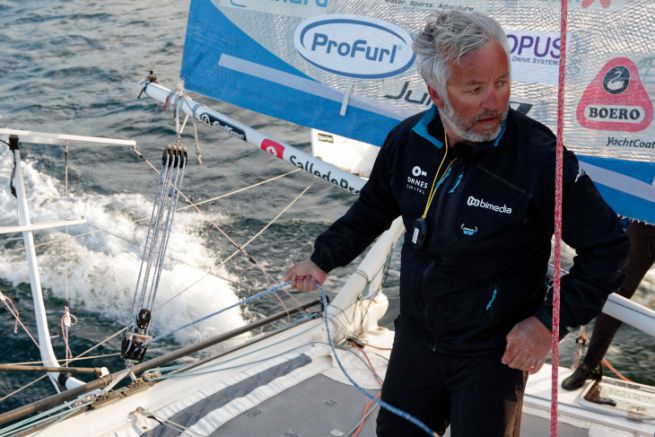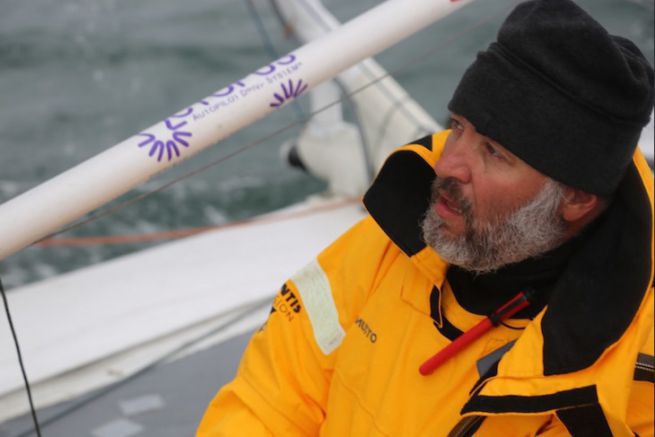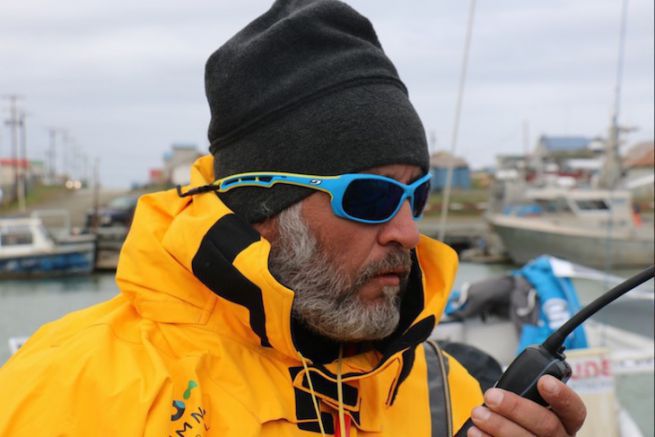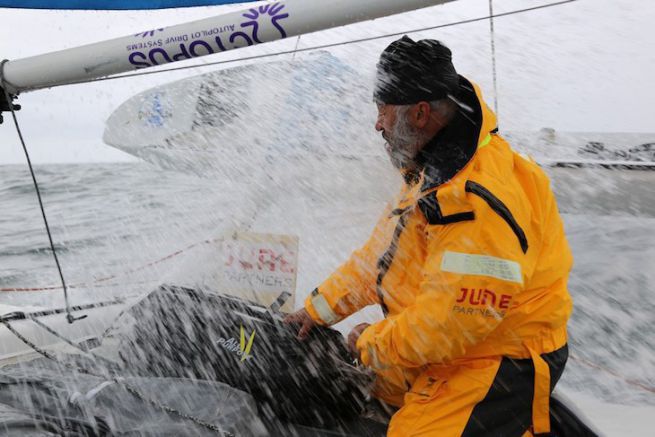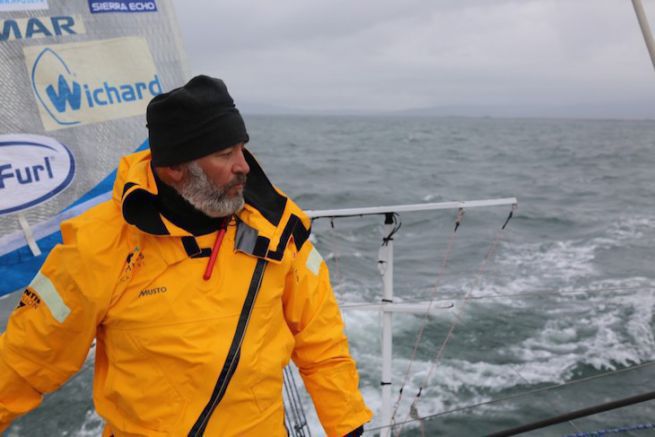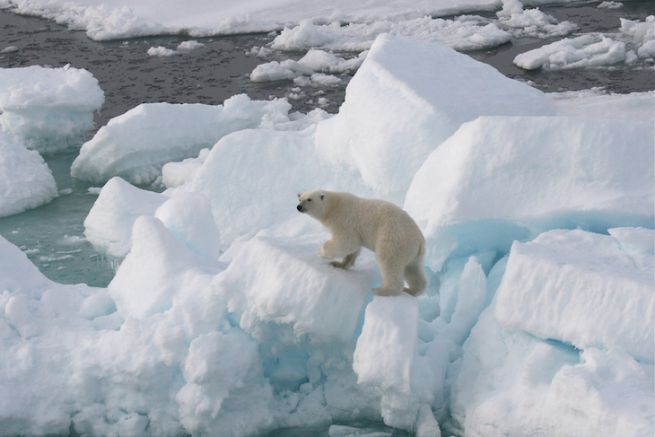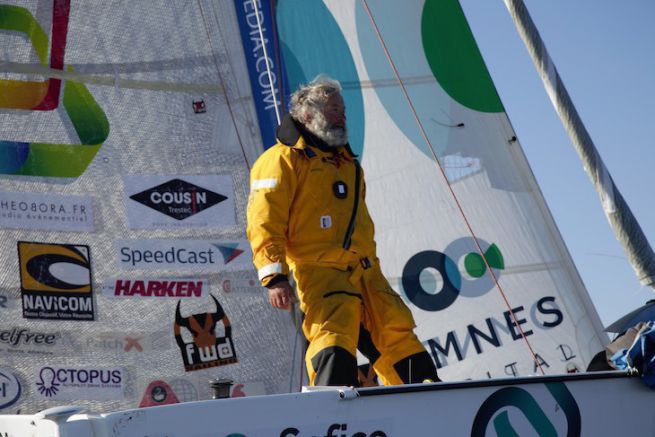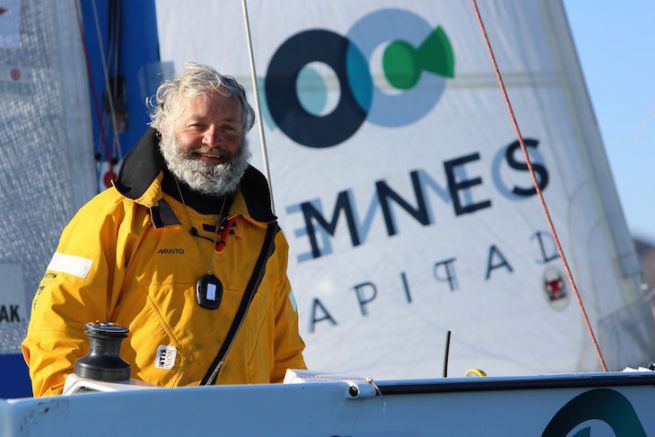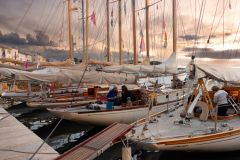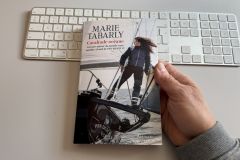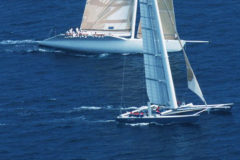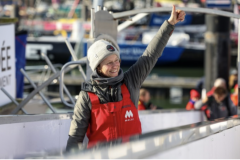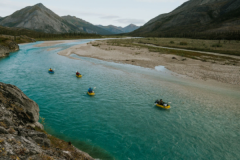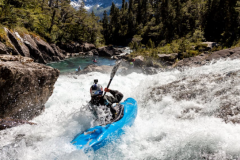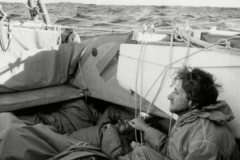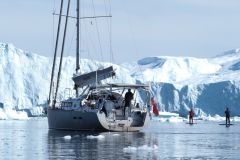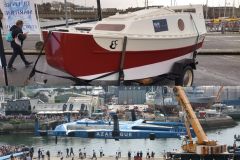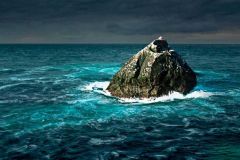How were your last days on the water?
I've been pretty spoiled to finish up these last few days, the weather was perfect. Between the ice cubes, the storms and the cold, I was under permanent tension and had little time to let off steam. To have been able to relax over the last 2 or 3 days of sailing was pleasant.
I realized that I had had terrible conditions before, as my crossing from the Baffin Sea to Nuuk went very well. There was always the cold, because that's a constant, but I didn't have a storm, the weather was fine. I loosened up a little bit, even though I didn't have my sleeping bag anymore, which had flown away a few days before the arrival. At night you need to have even more nappies and it was difficult to sleep there, as I was really cold.
What was your favorite part?
I've had several, but I think my favourite was the Simpson Strait passage, before being blocked by ice and stopped at Taloyoak. This strait is home to hundreds of islands and it was beautiful! The weather was beautiful, the light was exceptional, I slalomed between the islands in a light breeze, and on top of that, I saw whales!
I had a lot of other good times even though I thought I would enjoy this challenge more, which turned into an ordeal in the end.
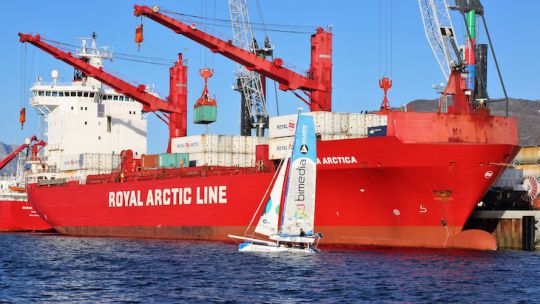
And the worst part?
The katabatic winds while I was at the anchorage in Weld Bay ...while we wait for the ice to open up. When I arrived in Nuuk, I ran into the crew of the sailboat (7 tons/23 m) that was with me in the bay and they told me that at that time we had had 70 knots (130 km/h) of wind for 4 hours !
Me, I was on a sport catamaran, with my 2 metal anchors and my 2 floating anchors in the middle of the dark night, between two cliffs to enter the Baffin Sea. If I capsized, that was the end... You can't get away with it in conditions like that and I didn't want to go through that. It was quite a risk and it's a miracle that nothing happened to me... When I passed the sailboat again, they were surprised to see me, they thought that I hadn't survived the violent winds.
After 3 weeks of waiting, when I left my anchorage, I knew it wasn't serious. The conditions had deteriorated, the night had taken longer... While I was sailing in the Baffin Sea, there were ice cubes everywhere... up to a kilometre long. The big ones aren't the most dangerous because you can still see them, but the small ones, 10 metres long, you can't see them... It's Russian roulette, either you're lucky enough to get through, or you knock and it's over... Your destiny is linked to luck at that moment!
Back on earth, what balance sheet/lesson do you take from this crossing?
In the end, this challenge could have gone through like a letter in the mail. It could have been done in 45 days, without ice, without storms, and I would have arrived thinking that it was not easy, but achievable. In Alaska, I didn't see the sun at all, I had rain, bad weather... I was told that I would encounter a maximum of two storms and I got seven!
As a result, with my delay following my blockage by the ice, my whole programme shifted... I had planned to arrive in Nuuk at the end of August so I wouldn't have to sail at night, but I didn't expect to encounter so much ice, so many rocks, such long nights... I found myself sailing between the icebergs, in 3 to 4 metre high waves... it was a snowball effect..
The second half of my journey, and especially the last third, was hard! It passed, but I tell myself in retrospect that it wasn't serious. When I tried for the 4 e times (at anchor in Weld Bay) to get through the ice, I could see that I was on the edge of what was achievable. And indeed, if I waited any longer, it was likely to get really ugly.
You don't learn the same lesson when you travel around the world through the tropics and conditions don't prevent you from passing... I've come close to giving up several times..
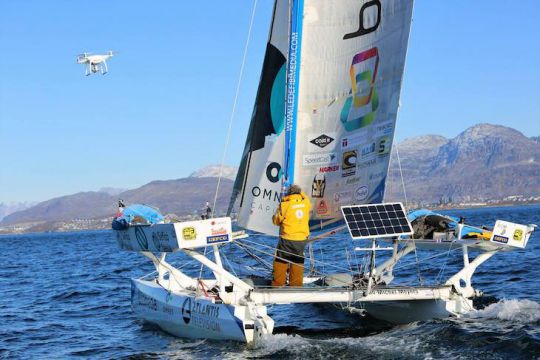
Now that you're back on earth, what did you miss most about your trip? Besides your wife and son of course.
It's mostly about not being under nervous strain anymore. On my other challenges, there was tension in particular moments whereas here it was permanent. And especially on the second part, where I didn't have much respite, where I could relax and unwind. Above all, I don't have to fight to stay alive anymore.
Your trip also had the objective of raising awareness of global warming, the mission was a success?
Two lessons can be drawn from this: the first on pollution and the second on global warming.
A German study indicated the presence of plastic in the Arctic Ocean. With the Sea Cleaner association (and the design of a boat to clean up the oceans), plastic pollution was of particular concern to me. I wanted to see with my own eyes if there was plastic waste. However, I did not detect the presence of plastic pollution on the surface of the oceans in the Arctic. The currents have not yet brought pollution to this place.
In terms of global warming, I was certainly blocked by ice at one point along the route... But 10 years ago, this route was 80% ice. Today, the area that blocked me only represented 20% of my route and I sailed on the sea for the rest of my journey. Ten years ago, I wouldn't have been able to sail this course single-handed.
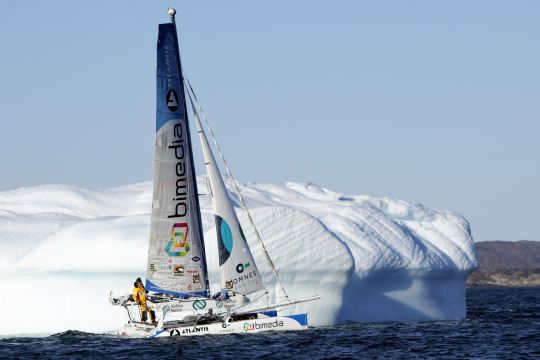
What are your plans for the future?
We're going to release a 52-minute film about the adventure with Canal + and a book next fall with Arthaud Editions. I'm back in business with my project Sea Cleaner which aims to fight against pollution of the oceans . We should be able to present the first plans of the boat soon. This activity should take up most of my time next year, as over the past eight months, I've put a lot of energy into the sporting side of things.
As far as the sporting aspect is concerned, I want to continue the adventure and get back to competition and ocean racing. In 2016, I did the Québec - Saint-Malo.
My next adventure, however, will be on big boats. I won't be taking any more risks like I did in the Northwest Passage. Adventure doesn't necessarily have to mean risking your life. I haven't announced anything for the moment, but I'm thinking seriously about the project and I'll probably make an announcement before the end of the year.
